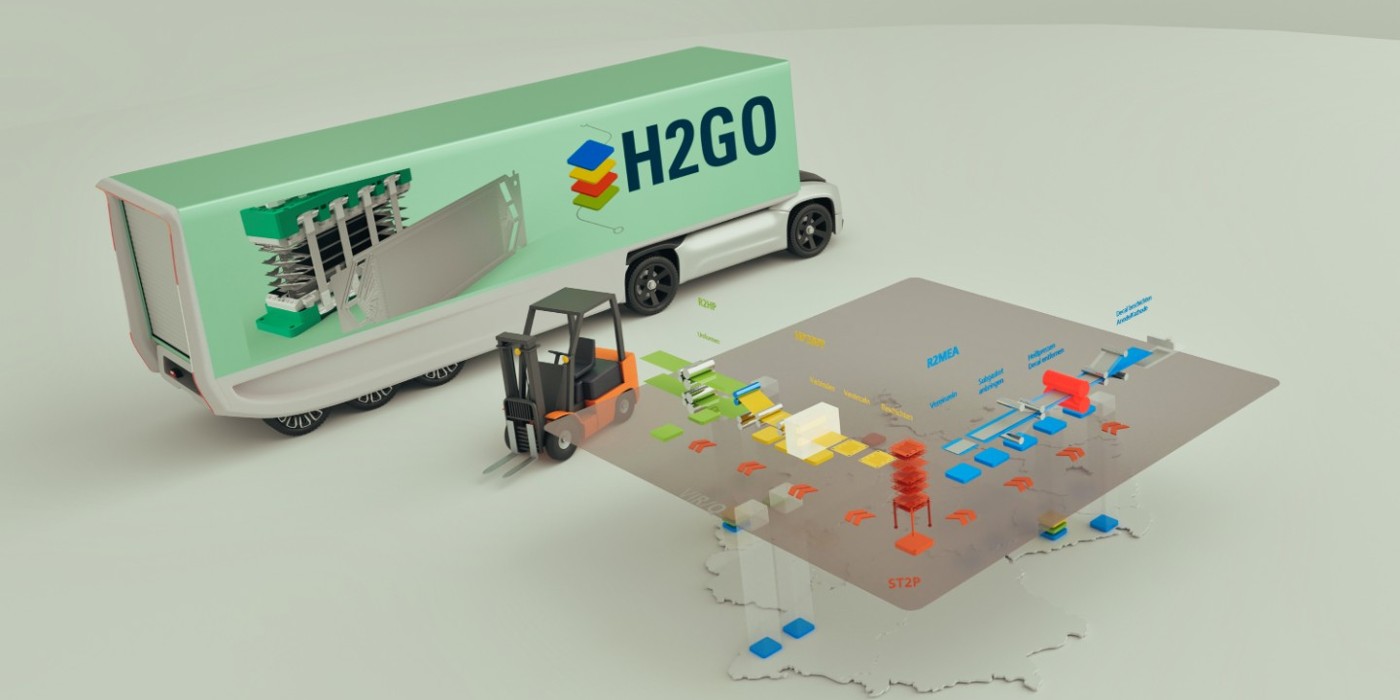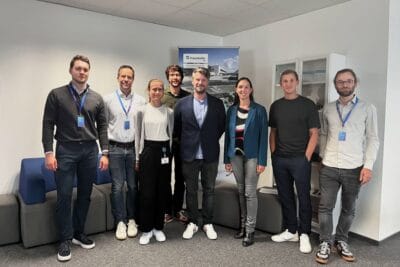Fraunhofer Institutes receive €80 million for fuel cell production
A consortium of 19 Fraunhofer institutes has received a funding decision of 80 million euros from the German Ministry of Digital Affairs and Transport (BMDV) for the project ‘H2GO – National Fuel Cell Production Action Plan’. With this, the BMDV wants to promote the ramp-up of fuel cell production for heavy-duty transport in Germany.
H2GO bundles the activities of 19 Fraunhofer institutes and nine federal states. The focus is on the development and rollout of industrial technologies for the economic production of fuel cells, primarily for heavy-duty road transport. The institutes are working to create the conditions for efficient large-scale production of fuel cells, according to a statement by the federal authority. Together with local networks, they will develop new manufacturing solutions in regional technology hubs.
The idea is to create an information pool where companies can benefit and thus develop their production elements. A virtual reference architecture is also to be created in which digital images of the developed production solutions will be made available to all participating partners. According to the BMDV, H2GO is also aimed in particular at small and medium-sized enterprises that represent the entire value chain of fuel cell production – from manufacturing technology to machine and plant construction to vehicle applications in heavy-duty transport.
According to Volker Wissing, German Minister for Digital Affairs and Transport, the funding will strengthen the competitiveness of industry in this country and make a significant contribution to reducing the costs of hydrogen vehicles in heavy-duty transport. “The alliance with the Fraunhofer-Gesellschaft takes the development of fuel cell production to a new level,” he says. “With our funding, we want to help generate marketable products in the field of fuel cell technology from successful research and development – and preferably on an industrial scale.”
Reimund Neugebauer, President of the Fraunhofer-Gesellschaft, adds: “Hydrogen is a key element of the energy transition. In order for hydrogen to become widely accepted as an energy carrier, it must be produced at market prices, in sufficient quantities and in a climate-neutral manner, and used with a high CO2 reduction rate. In heavy-duty transport, this requires in particular cost-effective, robust technologies for the economic production of fuel cells.”
The Fraunhofer Institute for Machine Tools and Forming Technology IWU is responsible for the overall coordination of the research network. The funding comes from the “Future Fund for the Automotive Industry”, which was set up in 2020 as part of the German government’s Concerted Action on Mobility to accompany the transformation of the automotive industry towards sustainable and digital mobility. The funding is coordinated by NOW GmbH, and Project Management Jülich (PtJ) is responsible for implementation.
bmvi.de, fraunhofer.de (both in German)





0 Comments